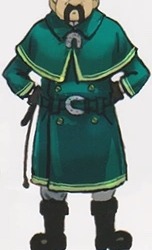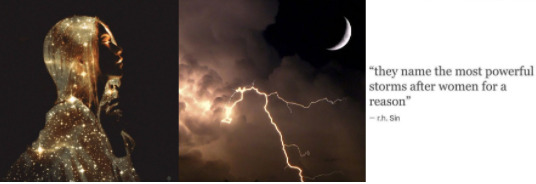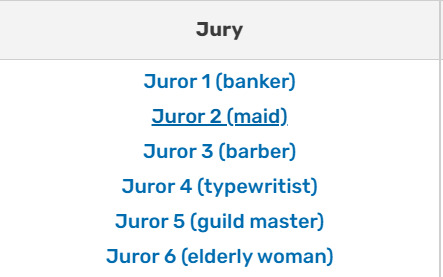#juror 5 (guild master)
Text

#ace attorney#polls#the great ace attorney: adventures#the great ace attorney chronicles#juror 5 (guild master)
2 notes
·
View notes
Text



Left: Guild Master (1-3)
Center: Laborer (1-4, 2-2)
Right: Young Girl (2-3)
5 notes
·
View notes
Text

Fandom: Fairy Tail (anime)
Face Claim: Drew Barrymore (Poison Ivy 1992)
Fic Series: Agents of Fate
Fic Playlist: Agents of Fate Playlist
Story Board: Agents of Fate
Pinterest Board: Kindred Blanche
Headcannons: 1 | 2 | 3 | 4 | 5 | 6 | 7 | 8 | 9 |
Concept Art: 1 |
Moodboard: 1 |

Full Name: Kindred Blanche.
Nicknames: Kin (the kids), Goldie (Gildarts).
Alias: Kindred Aurelia, The Aurelian Fairy.
Gender: Female.
DOB: July 31st, X 762 *post-Fate intervention
Star sign: Leo.
Age: 9-10(X772) 11-22 (X773-X784)| 22-24 (X791-793)
Affiliation: Fairy Tail Guild.
Occupation: Fairy Tail Guild Mage, Legal Guild Mage, part-time bandmember of the Agents of Fate.
Sexuality: Bisexual.
Nationality: Fiore.
Species: Human Mage.
Location: The Woods Below Fairy Hills, Magnolia. Fiore.
Moral Alignment: Chaotic Good.
MBTI: ESFJ - Consul.

Background:
She didn't remember a name before Fate.
When she woke up in the courtroom and it was decided that she was under Fate's jurisdiction, having a name didn't really matter compared to the fact that she had died.
The technicalities didn't matter. What mattered now was that she was eligible for a second chance and Fate was willing to give her one.
Well, give them one.
She didn't remember a name, but she remembered them.
Her sisters, just as nameless as she was, but she remembered that she loved them.
After she agreed to become an Agent of Fate, the goddess had left her in the Juror's room to retrieve her sisters, both crashing through the doors in a chaotic haze but she was glad to see them.
Then, she wasn't.
It took two hours of screaming, arguing, cursing, and threatening to kill them very dead for them to create their aliases to which they would enter their new world, armed with only the knowledge of what they had watched on TV.
[ [ Childish I know, but Seiren insisted that it would be Fairy Tail or nothing ] ]
Thus, Kindred Blanche and her two younger siblings was born to the wonderful world of Fiore, in a cottage in Magnolia that had appeared out of thin air along with a nine-year old, a six-year old and a four-year old.
While they had no recollection of who they were in their past lives, they could remember the world they came from vividly and though they were mentally and physically de-aged, they were still mature enough to understand their mission:
They were the Agents of Fate and they were going to change the world.
-
Family:
Seiren Blanche (younger sister)
Tora Blanche (youngest sister)
Erigor (foster brother, lives with them)
Makarov Dreyar (guild master, emergency guardian)
Friends:
(literally all the Fairy Tail kids)
Gildarts Clive (mentor, friend)
Frenemy:
The Magic Council (they have a famous love/hate relationship)
Enemies:
Ivan Dreyar (first enemy)
Karen Lilica (second enemy)
Brain (fourth enemy)
Jiemma Orland (fifth enemy)
Zoledo (sixth enemy)
Love Interest: Laxus Dreyar (best friends)
-
FUN FACTS:
• orphan • drama queen • gold gold gold • likes to meddle • fight to make up • hoards shiny stuff • will wrestle for dominance • The Original Big Sister™ • gets arrested like three times • steals children (in a good way) • feisty • likes to summon lightning bolts into her hands like she's Zeus or something • god complex • Trouble with a capital T • will throw hands • a totally innocent kid living in a freakishly nice cottage in the woods with only two younger siblings • has a lot of great ideas • will electrocute the shit out of you • more imp than fairy but technicalities •

[ [ If you have any questions about Kindred Blanche, don't be afraid to drop an asks in the inbox ] ]
#oc: kindred blanche#oc community#ocs#occommunity#my oc#oc#fairy tail oc#fairy tail#oc profile#ocapp#ocappreciation#ochub#occentral#allaboutocs#laxus dreyar x oc#fairy tail fanfiction#fairy tail fix it#laxus dreyar#natsu dragneel#lucy heartfilia#erza scarlet#gray fullbuster#juvia lockser#levy mcgarden#gajeel redfox#the thunder legion#bickslow#evergreen#freed justine
23 notes
·
View notes
Photo

The jury composition in TGAA (using the first jury case as an example) is super interesting. Because it’s not something that could have happened during the turn of the century. As an anon has brought to my attention, the games aren’t supposed to be set in exactly 1900, but women were only allowed to serve on juries in 1919. That’s not turn of the century, that’s Edwardian interwar period!
And not only that, even once the Sex Disqualification (Removal) Act of 1919 was passed, there were a lot of legal and customary barriers to women survey on juries (as discussed in this paper, the second academic paper I’ve read because of this game). One of the biggest legal barriers to women proportionally serving on juries was the property requirement. While a law passed in 1918 gave complete adult male suffrage and female suffrage on fairly low property requirements, jury service still operated on the property requirements laid out in the 1825 Juries Act. The property requirements laid out there resulted in the top 3 or 4% of registered voters in many areas being eligible for jury duty in 1925. These property requirements weren’t abolished until the 1970s.
Which makes another fact about the jury composition very interesting. Of the three women on the jury for the Adventure of the Runaway Room, two of them are working women- the maid and the typewriter would falt out be banned from While the elderly woman, if her husband (because she has a grandchild) left her sufficient property in his will, could serve on juries in her widowhood. (I know she makes reference to her other half, an expression that normally means a spouse. I’ll go into more detail in the paragraph where I discuss what alt history stuff would allow women this kind of jury to occur.) In as late as 1956, juries were described as “predominantly male, middle-aged, middle-minded and middle class...It is the property qualification that makes it chiefly male, simply because there are far fewer women householder than there are men.” And all the men depicted on this jury would qualify in the real world. The foreman is a banker, juror 3 is some wealthy toff, and the position of guild master juror 5 holds is clearly at the top of some kind of unequal hierarchy, even if he isn’t straight up the owner of an omnibus company. Also his references to Silver Blaze makes me think he’s supposed to be based on Colonel Ross from the Adventure of the Silver Blaze, who would absolutely be wealthy enough to serve on a jury.
And I don’t get why the creators didn’t make the jury all upper-middle class men. They’d certainly be more menacing with their Victorian elitism and overall uniformity that way. And while I don’t know enough to about the current popular perception of Victorian England in Japan right now to say what this means, but I find it very interesting that the legal system in England depicts one similar to when most of the goals of first wave feminism are complete (the sex disqualification removal act also let women guadriate and hold governmental jobs)- despite the fact that the turn of the century is when the suffragette movement was really picking up steam. And that is contrasted with Japan, where a fuss is made when Susato wants to simply serve as Ryunosuke’s assistant. I don’t think actual historical Victorian London would have a problem with Susato being a judicial assistant- and I mean it’s not like modern Ace Attorney assistants are actually qualified to be co-counsel (fellow lawyers) in most games. Yes the female suffrage movement in Japan did end up behind Britain's, but that diverance didn’t occur yet. So again, I’m intrigued why this creative choice was made in a Japanese game.
And now that we have the Doylist analysis out of the way, we can do the Watsonian analysis. Jury service is very frequently tied to voting franchise in many rights and countries. So I think that we can say that Britain passed an equivalent to the 1919 Sex Disqualification Removal Act in the AAverse (which I feel like shouldn’t be a near complete emancipation bill just yet). And just to keep things more simple, I’d say fairly recently. While I can’t come up with a cause other than butterfly effect from the Feys and trilobites, the effects of this law would actually be pretty useful for my alt history scenario. There would still be the customary practices that kept jury service non-proportional in the 20s, but as discussed in the paper, those customs were highly local and very discesiontal. Van Zieks doesn’t care, the Judge is a cool dude, and Ryunosuke respects women and probably doesn’t really know he can do jury challenges, so women end up on the juries we see in the game. The big difference, other than a time acceleration for female suffrage/jury service would be a change in the property requirements. Instead of getting rid of it together, there would also be a moderate income requirement. This could either be in the original law or as an amendment to accommodate the professional middle class that emerged in the Victorian era. So while no factory worker is getting on a jury, an obsessive and experienced typist with a lucrative position and a maid in a high position in a grand household can. The entire middle class will be making an appearance even in the turn of the century. Judges also often allowed women to leave juries because of their household duties, and while I think this would extend to most domestic workers in this timeline- the maid’s constant references to how important the removal of rubbish is makes me feel like her boss sees civil duty as vital and would give an employee in his household a day off for jury service.
The other things about the jury that don’t match to history, can much more easily (because of their lack of greater sociocultural ramifications) be dismissed as butterfly effect changes and not be examined closer in-story, as well as be further ignored due to their likely ludonarrative dissonant nature. Reading the wiki article on the juries that appear in the first game does make it seem like jurors have to serve more frequently than they should, especially with this increased franchise. But that just means less models are needed, and hey, maybe in-story you’re essentially on call for a couple of months and then won’t be called again for several years. I’m also pretty sure that during the turn of the century juries had to be comprised of 12 members, but I only know that from inference from 1939 law giving an emergency authorization to reduce that number to 7 except for cases of murder and treason. But cutting the normal number in half makes things easier to follow for the players and easier on the character designers as well. The Scales of Justice, well they just look cool. The Summation Examination is also a fun mechanic, although I have no idea if it’s based in any kind of history, especially given the localizer’s habit of translating Japanese phrases instead of finding the equivalent English phrase for said historical concept. But unlike everything I just listed, the gender and class composition of the jury has no production or gameplay benefits and I still remain baffled at the creator motivation for this ahistoricity.
19 notes
·
View notes